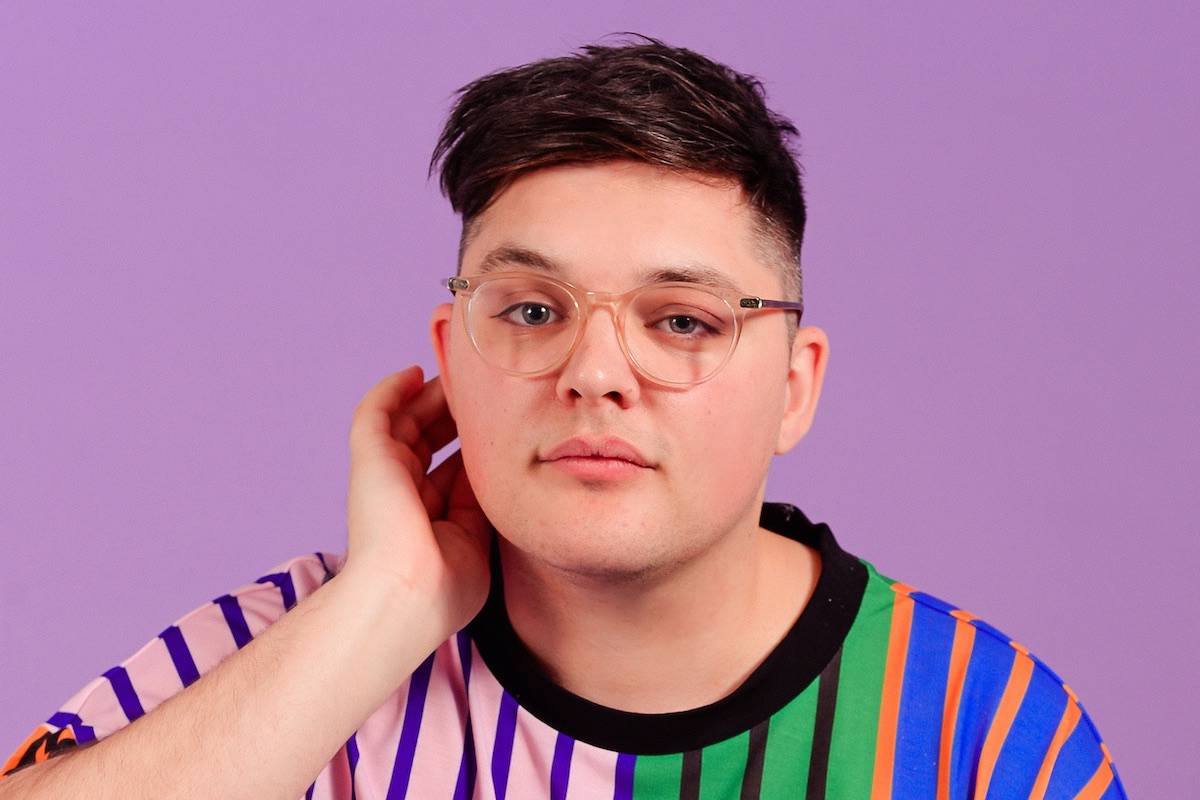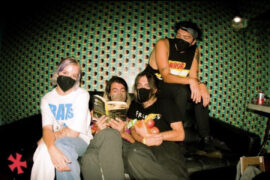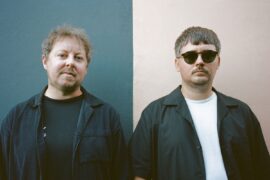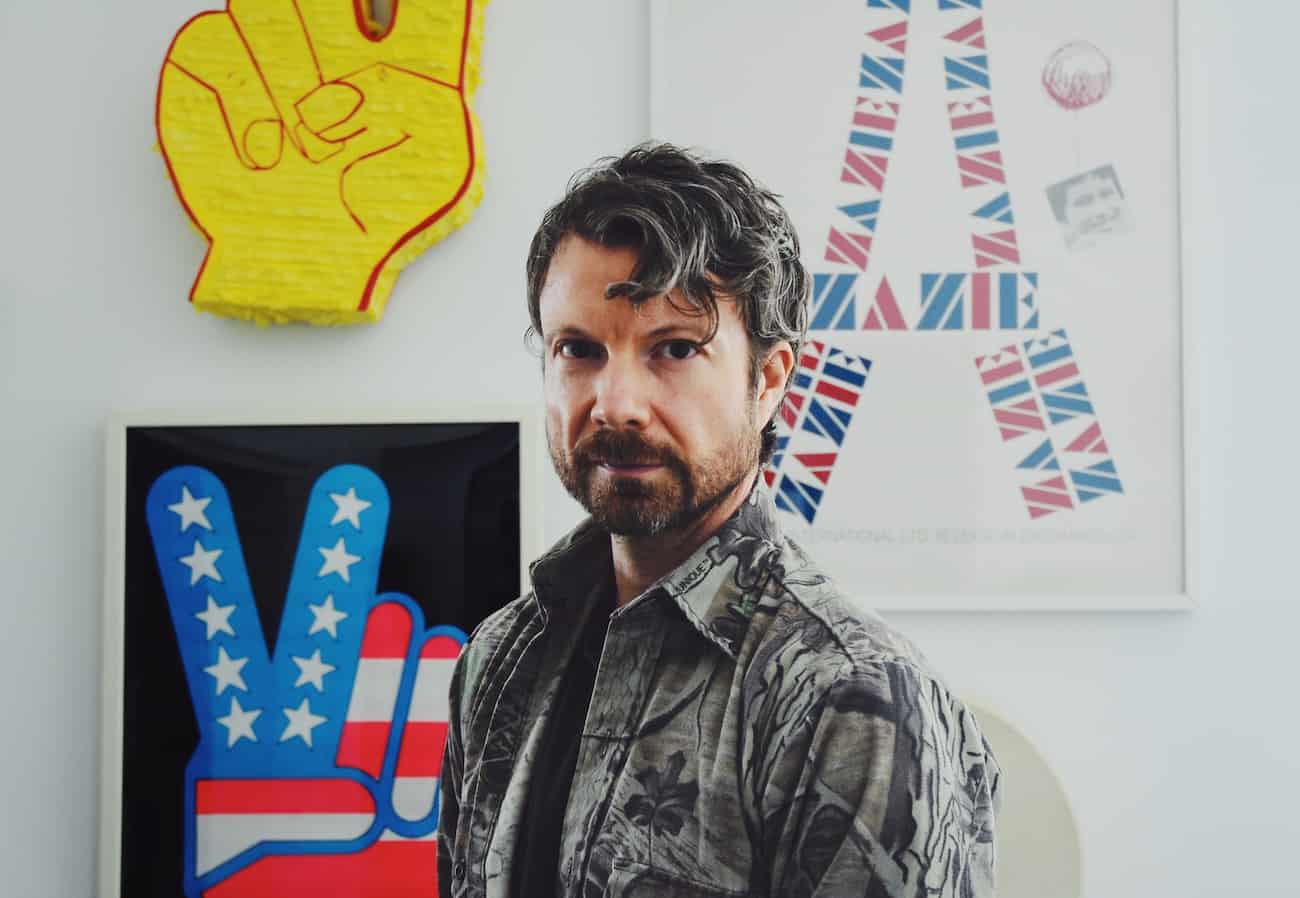Phoenix’s frontman Thomas Mars discusses the French indie pop band’s staying power, making music in the Louvre, and the incredible allure of their seventh studio album ‘Alpha Zulu’ – an effervescent record powered by a bold, spirited, eclectic and intoxicating energy.
Stream: ‘Alpha Zulu’ – Phoenix
You’re now closer to the start than to the limit. Take a bow, vow to the sky, if you wanna wait, great…
It’s hard to resist the incredible allure of Alpha Zulu.
Phoenix’s effervescent seventh studio album, released late last year, has an invigorating, eclectic energy that immediately draws listeners in. The French indie pop band have a refreshing pep in their step as they soar high and sweep low, drenching listeners in a colorful funk of sweaty dance beats, smoldering synthesizers, glitchy samples, grooving guitars, and more – all bolstered by charismatic frontman Thomas Mars’ radiant, instantly recognizable vocals.

Born out of a “desire to stretch the spectrum,” Alpha Zulu is at once familiar and altogether new: Mars affectionately likens it to the band’s 2000 debut album United, in that it’s deliberately diverse and musically varied (while still strikingly cohesive, we might add). “When we picked the songs, we picked the ones that had the least in common,” he explains. “We wanted it as wide as possible; we just stretched everything!”
These songs, he says, “would have nothing really in common but just to be on the same album.”
Broad-ranging in the best of ways, Alpha Zulu casts a wide net to great effect. It’s Phoenix unlike we’ve ever heard them before; unbound, unrestricted, and free – empowered both by circumstance and an insatiable inner drive to create to their hearts’ content and follow their most outlandish ideas through to fruition. You can easily tell when musicians are having as much fun making their songs as you are listening to them, and in this case, the band’s passion is palpable – and infectious.
Recorded between 2020 and 2022 in the Musée des Arts décoratifs studio located within the Louvre Palace in Paris – a first both for the group, and for The Louvre, whose patrons debuted the studio with these sessions – Alpha Zulu was made amongst a dizzying array of greats, and it’s easy to hear their influence in Phoenix’s artistic output. Every night, as the museum lay empty, the band would work in those hallowed halls that house the Mona Lisa, Venus De Milo, Liberty Leading the People, and even Napoleon’s throne, which sat right outside their studio space.
Inspiration flowed naturally – especially after so much time apart; since forming Phoenix when they were teenagers in Versailles, Thomas Mars, Deck d’Arcy, Laurent Brancowitz, and Christian Mazzalai had never spent more than three weeks away from one another. The COVID-19 pandemic upped that number to nine months.
“The frustration sort of helped us do things quicker,” Mars says candidly. “It’s almost like in the studio there was more gravitas, there was more depth, and it was heavier. We came up with a lot of material in the two, three weeks that we got back together.”
As for making music in the Louvre, he can’t help but smile. “No one was there except the guards at night and the ghosts – every guard will tell you that they have seen ghosts,” he shares. “And the art and the paintings and the sculptures… our studio became the storage room. It felt like making an album in Xanadu or something. It was surreal and really inspiring.”
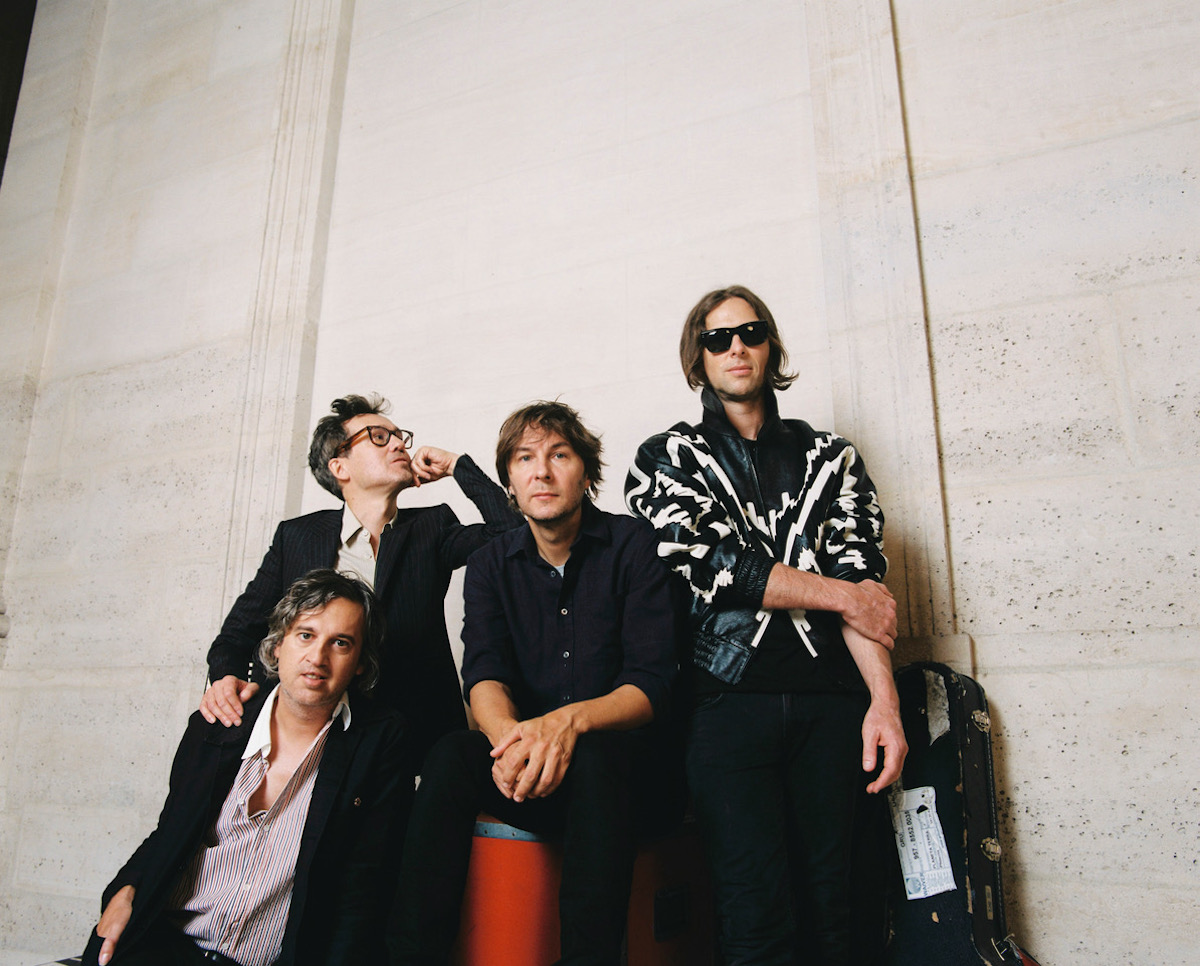
That immersive, one-of-a-kind experience laid the foundations for Phoenix’s most exhilarating creative output in years.
It’s as though all those da Vincis and Michelangelos, Caravaggios, Delacroixes, Rubenses and Vermeers brought out the very best in the band, who immediately set the tone with the album’s intoxicating opener and title track “Alpha Zulu,” an invigorating fervor filled with a dynamic warmth, cool strut, and strong, searing alt-rock drive.
Things really do go all-out from there: The irresistibly dynamic and lively “Tonight,” featuring Vampire Weekend’s Ezra Koenig, represents Phoenix’s first-ever collaboration with a truly external entity – and a phenomenal one, at that; the synth-soaked “The Only One” is a moment of dreamy, wistful reverie; and the sprightly, cinematic “After Midnight” is a euphoric, carefree soundtrack to late-night magic. As disparate as Mars says these songs are on paper, so much about Alpha Zulu seems to celebrate, and elevate, moments spent together in the company of our loved ones.
And that’s as good a message any album (or artist) could hope for, especially given what we all went through just a few years ago.
“If Alpha Zulu has a theme, it would be: Who do you hold onto in moments of fear? And how do you preserve the magic in those relationships?” Mars says. The band dedicate their album to their close friend and collaborator Philippe Zdar, who died in a tragic accident in 2019. A celebrated French musician (one-half of Cassius), DJ, sound engineer, and producer, Zdar produced three of Phoenix’s albums, including 2000’s groundbreaking United and 2009’s Grammy Award winning Wolfgang Amadeus Phoenix.
“He would help us, especially towards the end, he would give us confidence, he would help us shape the record,” Mars says of his late friend. With Zdar gone, the band took it upon themselves to produce each song to the best of their abilities before sending it out to Manny Marroquin for mixing.
“That was more weight on our shoulders, which was good. But it was a lot to carry at some points. It was a big leap of faith for us, and you always try to find ways not to have that much weight and carry everything with you… The song doesn’t really reveal itself as much as you have to force it. You have to make that moment happen, and the four of us, I think we talked and debated more than ever on this album because we had to do this mini mixing together, and make sure that everything was at the right place before we sent it.”
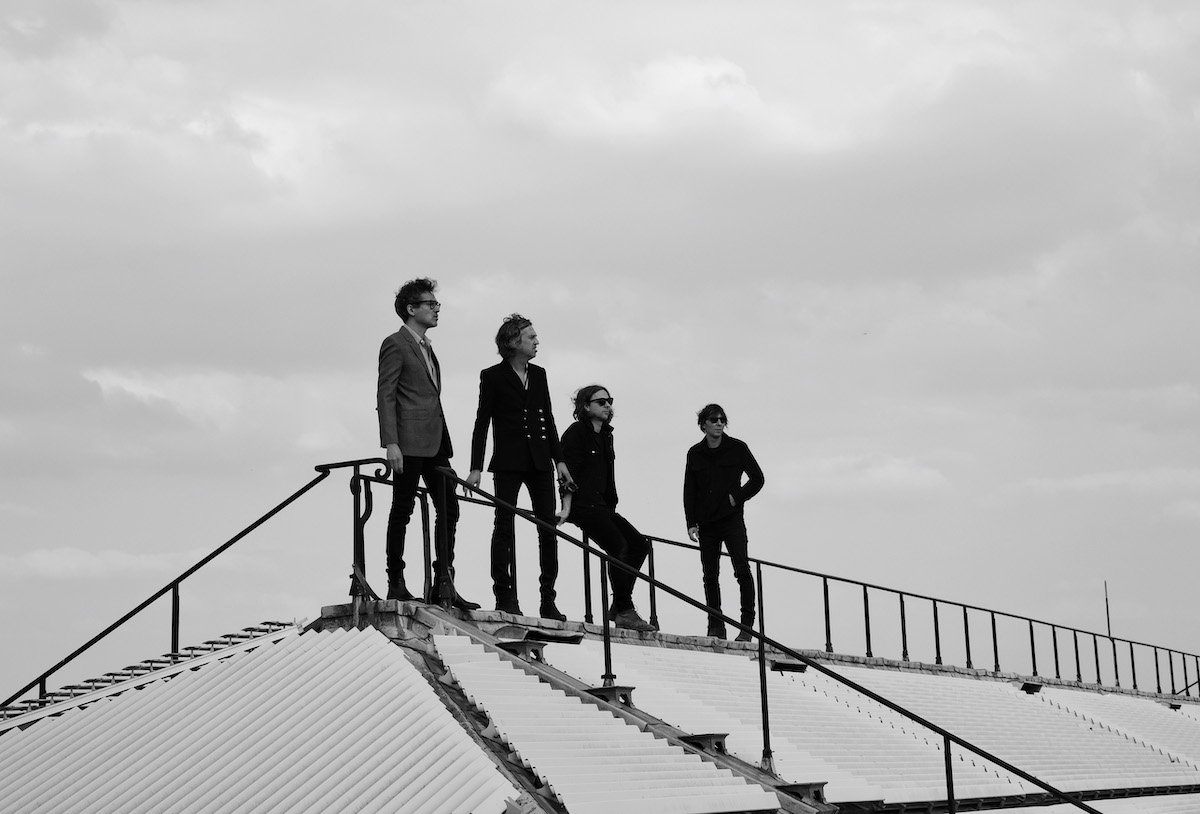
That hard work and extra effort paid off in the end: Filled to the brim with heart and charm, raw emotion and captivating energy, Alpha Zulu remains the same bold, spirited, unapologetic and inspiring collection of songs we first heard a little over a year ago.
In the time since its release, Phoenix have continued to embrace the album’s spirit of connection and collaboration. After a spate of shows in Europe and Asia at the top of the year – including a set at Glastonbury – they spent the summer co-headlining a US tour with Beck. They also released new version of their songs “After Midnight” featuring bedroom pop artist Clairo, “All Eyes on Me” featuring BENEE and Pusha T, and most recently “Artefact” featuring León Larregui (frontman and guitarist for Latin Grammy Award-winning band Zoé). The band are also preparing for a banner year in 2024, having already announced a dozen or so slots at music festivals throughout Europe and the Americas (more info here).
Creating art in the largest museum in the world, amongst some of the most celebrated works throughout the annals of human history, is an inherently daunting task. Phoenix took that challenge as an opportunity to make some of their best and boldest music yet. A quarter of a century into their career, the French band of best friends continue to ride high – with an unmatched sound and youthful vigor that subverts expectations, even after all these years.
Atwood Magazine caught up with Thomas Mars to discuss Phoenix’s staying power, making music in the Louvre, and the ins and outs of Alpha Zulu. Dive into our interview below!
— —
:: stream/purchase Alpha Zulu here ::
:: connect with Phoenix here ::
Stream: “Alpha Zulu” – Phoenix
A CONVERSATION WITH PHOENIX

Atwood Magazine: Thomas, thanks so much for your time today! Where do we begin? 20-plus years is a long time to be in a band; Phoenix has been together since the late 90s. To what do you attribute your staying power?
Thomas Mars: I mean, I’m not sure if we’ve “stayed in power,” but the longevity, I would have two answers for this. One would be the most Malcolm Gladwell approach, which would be that there are two brothers in our band and neither of them is the lead singer. I think that’s why we stayed a band. If you look at statistics, AC/DC are still go going, not the lead singer; Oasis, not going, lead singer. I haven’t studied every single band with brothers, but it seems to be a trend… That’s one thing.
And just the fact we are like a family! We’ve known each other since we were kids; we grew up together, so we don’t have to explain things. There’s no misunderstandings, we speak the same language in the studio. We share the same experiences – the hurdles, the moments that would be problematic. When you play a show in front of nobody, or when a record is not as successful, these are somehow great memories. That’s big – for us, we enjoy making music together and we enjoy each other’s company, so I don’t wanna jinx it. We made music at the same time as we became friends – it was never two things; it was always connected.
I suppose if you come together over something you love and you continue to love that thing, you continue to love being together.
Thomas Mars: Yeah, and the music changes also! There’s so much you can do in music… It’s not always exactly the most tedious, same exercise. There’s a cycle that’s really healthy. You go on tour, you make artwork, music videos together, and then you are back in the studio. So that’s helpful, that we don’t feel stuck together. There’s a lot you can do – when we do soundtracks, it’s like a mini holiday for the brain!
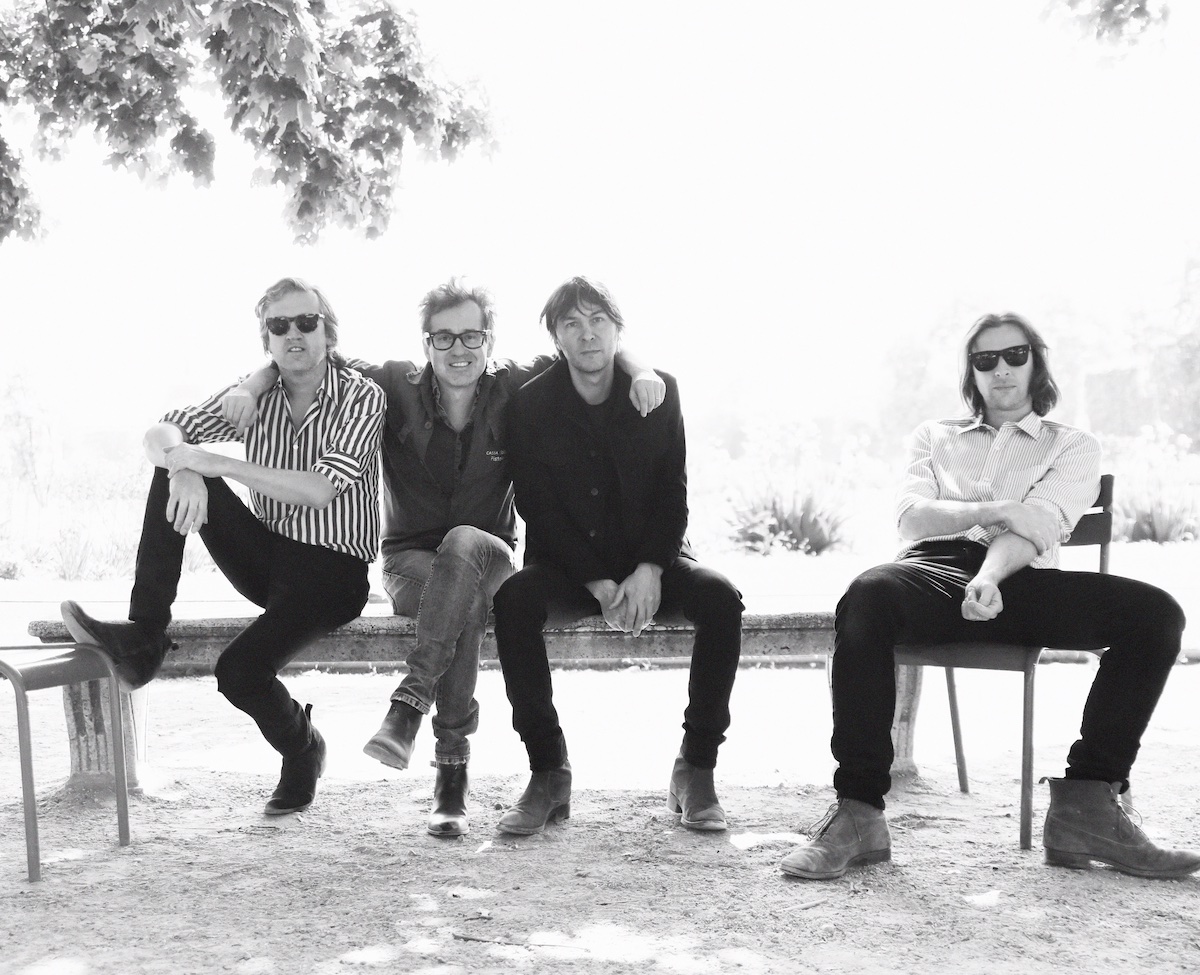
I love that you're talking about how nice it is to be together in the studio and to share those moments! In contrast, Alpha Zulu comes out of a time when we weren't able to be together. Was it recorded during the pandemic, or does it predate it?
Thomas Mars: We released our last record in 2017 and we toured for a long time, and in 2019 I think that’s when we started. We were in Brazil between shows and festivals and we had a week off, and we started working a little bit on a few songs here and there. Then when the pandemic happened, usually we are together all the time. I think we were apart for like 9, 10 months. The frustration sort of helped us do things quicker. It’s almost like in the studio there was more gravitas, there was more depth, and it was heavier. We came up with a lot of material in the two, three weeks that we got back together right after. And we also had for the first time an incredible studio in the Museum of the Decorative Arts in the Palace of the Louvre in Paris.
So we were in the Louvre for two years making music during the pandemic. No one was there except the guards at night and the ghosts – every guard will tell you that they have seen ghosts. And the art and the paintings and the sculptures, well, our studio became the storage room. It felt like making an album in Xanadu or something. It was surreal and really inspiring; I didn’t think that having art around [would help] – we always try to escape having gold records and the real professional studios, because we always love to set up a unique place, a unique environment for us to work in. But this, they wanted artists to come, and we were the first one they invited to make music, create something in there, and that was really incredible to be there for a long time.
I imagine that Phoenix are hometown heroes for Paris –
Thomas Mars: Eh, I don’t really know! We grew up in Versailles, and we have a strong link with Versailles, even though we’ve never really managed to [break in]. Versailles, it’s almost like a secret society – it has its own dynamics, dress code, and things. So we can’t really be its “heroes,” because we were never embraced by Versailles for what it is. Versailles did feel like a museum also, because everything great happened in the past… People wouldn’t embrace you for making music or for creating anything new.
Interesting. You do come from the city, an area with such a rich history of music and of upheaval and uproar as a result of music. Do you feel like you can hear the Louvre's imprints on this album anywhere? Do you feel its presence in your music?
Thomas Mars: Because it was a pandemic, it would take us seven minutes to go from the entrance of the Louvre to the studio. Those seven minutes were getting us ready for the day, and you could choose the path you were going to take. You could choose, like am I going to the medieval aisle or something. It was like an artistic shower in a way, getting you ready for the day… And what was also interesting is that, most of the time when you go in a museum, the art is very curated and it’s presented to you in a certain way. The pandemic created a bit of a chaotic situation… Certain times, the pieces were under a white piece of cloth or a sheet.
Our studio became the storage room, so it was really not curated – it was sort of a mess, and it felt a little bit like the end of Raiders of the Lost Ark. If you wanted to see more, you’d lift something up, so it wasn’t really a passive relationship with the art. It was a little bit more active, and I think it inspired the record because it was really pop, things clashing with each other! You had things that wouldn’t be in a curated environment, they wouldn’t live together – and that’s a little bit like how we make music! We use Monteverdi chord progressions, so like 1500 something, and then we have samples and the newest software. We love to mix things that were never supposed to be together. So that’s my long answer to how it made sense, ‘cause it was duplicating the creative process and the way we make music.
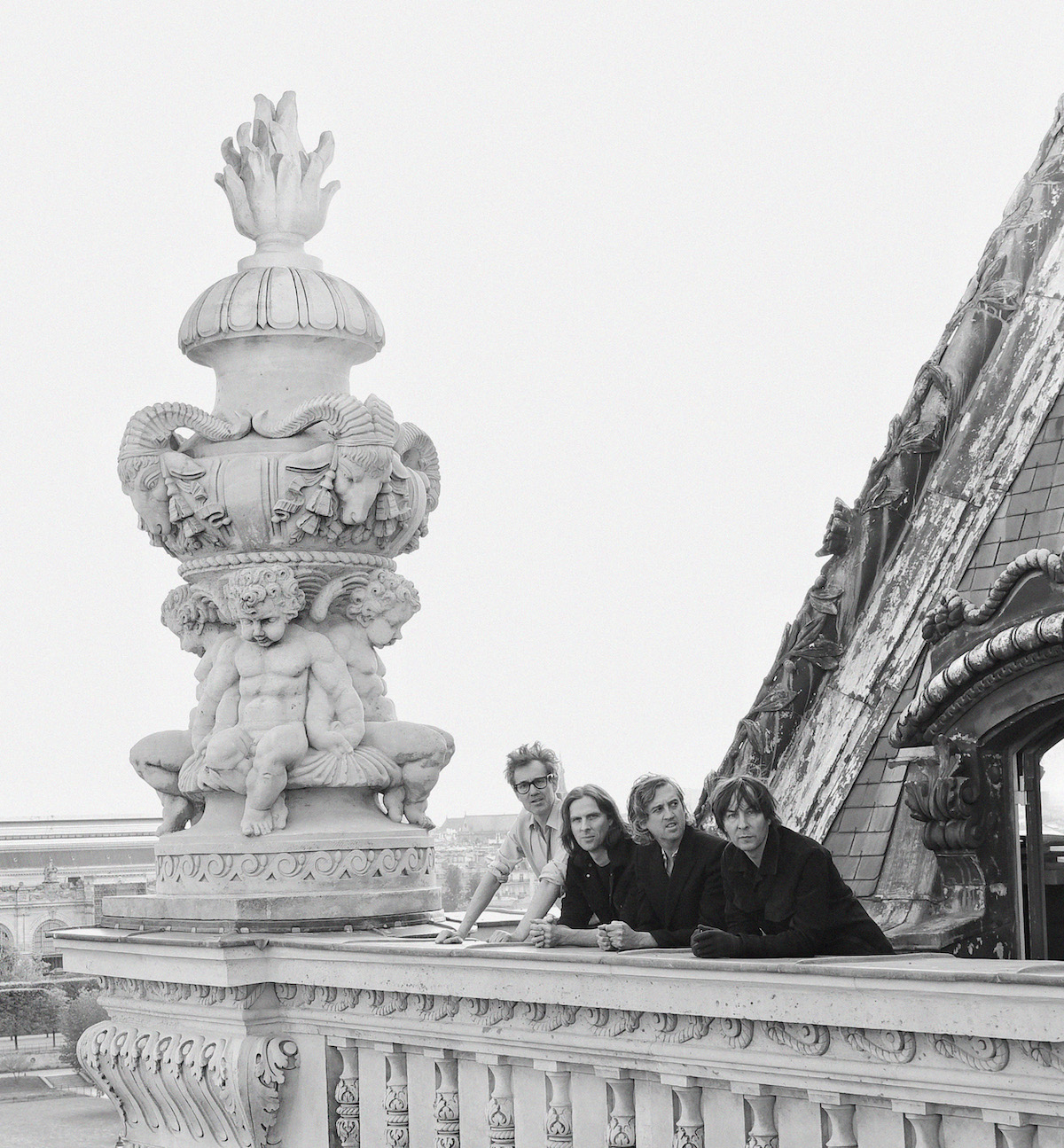
You were probably done with art museums for a little while.
Thomas Mars: Well, no! What’s nice is, you want more. I think I have acquired more of the taste, like I know more about what I like. There’s certain things I’m like, “No, I’m done with this. I don’t need to see one more Tudor, one more bit of cutlery.” I’ve seen plenty; but I’m more curious about this. It’s just like music – once you love something, you’re curious about a lot of things, but instead of having gold records on the wall, like, Napoleon’s throne was the last thing we would see before entering the studio, and it’s kind of grand, and at the same time, it’s a little goofy, because they took the imperial eagles away and they put these pinecones to make sure that the grandeur of the imperialism is not too high on the pedestal or something. So it was a mess, but it was a good mess!
How does Alpha Zulu compare for you to Ti Amo and Bankrupt!, Phoenix's albums of the 2010s?
Thomas Mars: Well, we had to be our own producers, because Philippe Zdar, who helped us on different records, wasn’t here for us anymore. He passed away three years ago.
I'm sorry for your loss.
Thomas Mars: He would help us, especially towards the end, he would give us confidence, he would help us shape the record. Manny Marroquin was someone we always wanted to work with as a mixer ’cause we love everything he mixes, but he’s also one of the biggest mixers ever. He’s mixing everything, so it’s hard to be a priority for him, and so because he loved the band, he turned out to be a super easy work relationship, but we knew because we would send him files and we wouldn’t be in the studio with him the same way that we would with Philippe… We’d bring one song, and in three days we’d work on the song and finish it. We had to produce a song to its maximum to make sure that when we sent it to him, because there wasn’t that much exchange possible. So that was different, that was more weight on our shoulders which was good. But it was a lot to carry at some points. It was a big leap of faith for us, and you always try to find ways not to have that much weight and carry everything with you.
Does that create a different relationship for you between these songs than for some of your older material?
Thomas Mars: Yeah. Maybe, you are almost overthinking about the songs because you have to be, what is the essence of the song? What is the thing you really wanna highlight? You are not really figuring this out when you are mixing it. So you are almost doing a mix yourself. The mix can be a creative moment, but for us, we have to really finish it before. It shifts the process a little bit. The song doesn’t really reveal itself as much as you have to force it. You have to make that moment happen, and the four of us, I think we talked and debated more than ever on this album because we had to do this mini mixing together, and make sure that everything was at the right place before we sent it.
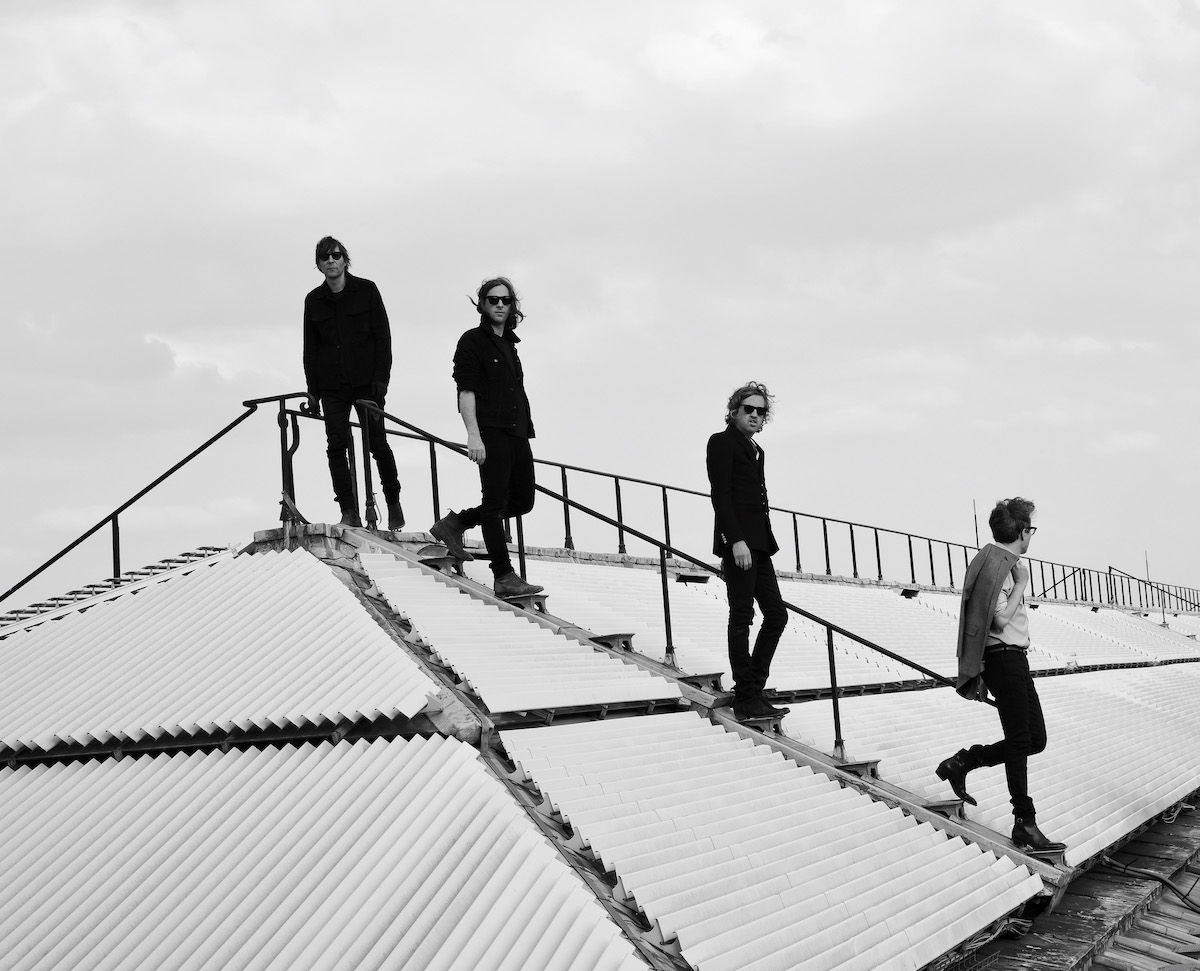
Where do you feel Alpha Zulu falls in the canon of Phoenix albums?
Thomas Mars: I don’t know. I think when we finish an album, the fact that the four of us agree on something, it’s kind of the seal, it’s the guarantee that we will like it in the future because it represents who we were at that time. All four of us agreed on something, and that’s enough to make this an album. If I had to compare it to other records, I would say I wouldn’t really put one better than the other or something.
To me, it’s similar to United, our first record, because it comes from a desire to stretch the spectrum. When we picked the songs, we picked the ones that had the least in common. We wanted it as wide as possible – and it’s also a reaction to Ti Amo, which had a vibe. It had a theme, Ti Amo, it had a very precise atmosphere. So with this one, we just stretched everything and we’d pick the songs that had the least in common, and that would have nothing really in common but just to be on the same album, which is something we did on United. On United, there was the song “Funky Squaredance” – it’s one song, but it has almost these three styles of music together in one, next to each other. So yeah, I think it’s similar to United.
I never thought about that, but I guess United is an ironic name, huh?
Thomas Mars: Yeah, I can’t remember when we came up with it – the first album was supposed to be called “Flight Simulator” because that was suggested by Toma from Daft Punk, ’cause he was in the studio when we recorded “Funky Squaredance,” we had a choir and he came as part of the choir. Because he’s so great at orchestrating and things, he kind of took the lead and became the conductor a little bit. For him, “Flight Simulator” was a great first album title for Phoenix, which I really agree, but because it wasn’t ours, we were like, we need to call it something else. Our posters would say ‘Flight Simulator’ and we put a poster out that said United on top of Flight Simulator so they both existed in a way.
The song that you chose to return with was the lead single and the title track, “Alpha Zulu,” which is really a powerful song! What was the desire to come back with this song, and how do you feel it served as the reintroduction and the beginning of this album?
Thomas Mars: This was the first song we finished, and so it was like the cannon for it.. There’s also an urge when you finish a song and you wanna share it as soon as possible. So I think it was in our mind that we would put it out first. And then it’s also the reactions of our friends that would come in the studio. They seemed a little bit confused, or some people really loved it. Some people were confused because they thought it was not the most “quintessential Phoenix-sounding” song. So that’s also something that’s always nice, when you start a new project, to give a little bit of a new taste of what things are different.
I think there’s a lot of songs that are different, but the next one (“Tonight”) is a more familiar song. So it’s fun to play with all these sides of the band. I think it’s just because it was the first song that was done and we’re like, okay, that’s the one, we’re ready. We started working on a music video and on a few things. And it felt like we also thought about Philippe – like, I think he would want that one. We have no way to really tell, but I think he would.
I love the idea of pushing your listeners to expand their idea of what a Phoenix song can be. I was also really taken with “Tonight,” which I think is your first time featuring an artist, with Ezra Koenig! What was your experience working together with him and how did that song come about?
Thomas Mars: It was really fun! We met over the years playing the same festivals, we became friends through festivals, and then our wives worked together on a movie, so we spent time together without working. We didn’t have to play a show. The song “Tonight” was always meant to be a duet – and in the template for the other voice, we called it the “Ezra part.” So unconsciously we knew it was him, but we didn’t admit it. We had a whiteboard, there’s one solo that, we never asked Jack White to do a solo, but we called it the “Jack White solo” ’cause it sounded like a weird solo that he would do – which if he’s reading this one day, if he wants to, he’s welcome to do the solo! [laughs] I’ve always appreciated how like messed up and violent they are.
So with the Ezra part, Chris and I and the band were like, let’s reach out to Ezra. We’d never asked anyone to sing, but this feels like it’s exactly what it needs. And we just sent him files, and every time he would send it back, it felt like it was a Christmas gift: We’d open the files and it was always better than when we’d started. It’s fun, I wrote words that are really cryptic and stream-of-consciousness, and to have someone else sing them, when it works, it’s really satisfying. It’s satisfying that he’s also able to bring something else, and so now I guess we’re trying to figure out how we are going to play this song live! I guess I’ll sing every part, but every night I’ll be like, it’d be better if he was here…
I really love the subdued atmosphere of the song “Winter Solstice.” That's easily one of my favorites on the record. It's not quite as hard hitting as maybe “Artefact” or “All Eyes on Me,” but something about that song really, really touched me. How did that one come about?
Thomas Mars: I was away because of the pandemic, so they sent me a file. It’s just me singing on a file, but it’s something that was upsetting to me because that’s exactly what we’re not about. Our band is just writing together in a studio together, but we had no choice. I was in Northern California and it was during the fires, and there were a few days where the sky was orange. There was one day where the sun never set up; it stayed dark the entire day, and the next day I received a file. I remember singing it in like a fetal position, like a fetus. Like a little animal that’s freaking out.
I wish we would’ve written it together; I still see a sign of friendship and think that it was a way to communicate between us when we were all apart. Everybody was going through something really strange. It’s hard to make music in these moments at first, because you think it’s so shallow and it has no function, it’s not something you should be doing. There was also no way to get on tour, there was no way to release the song. But then you realize, “Oh, no, it’s how we communicate with the band and how we share stuff.” So yeah, that one is special for us too because I’m not sure if we’d ever do one in the same way we did this one. I hope not.
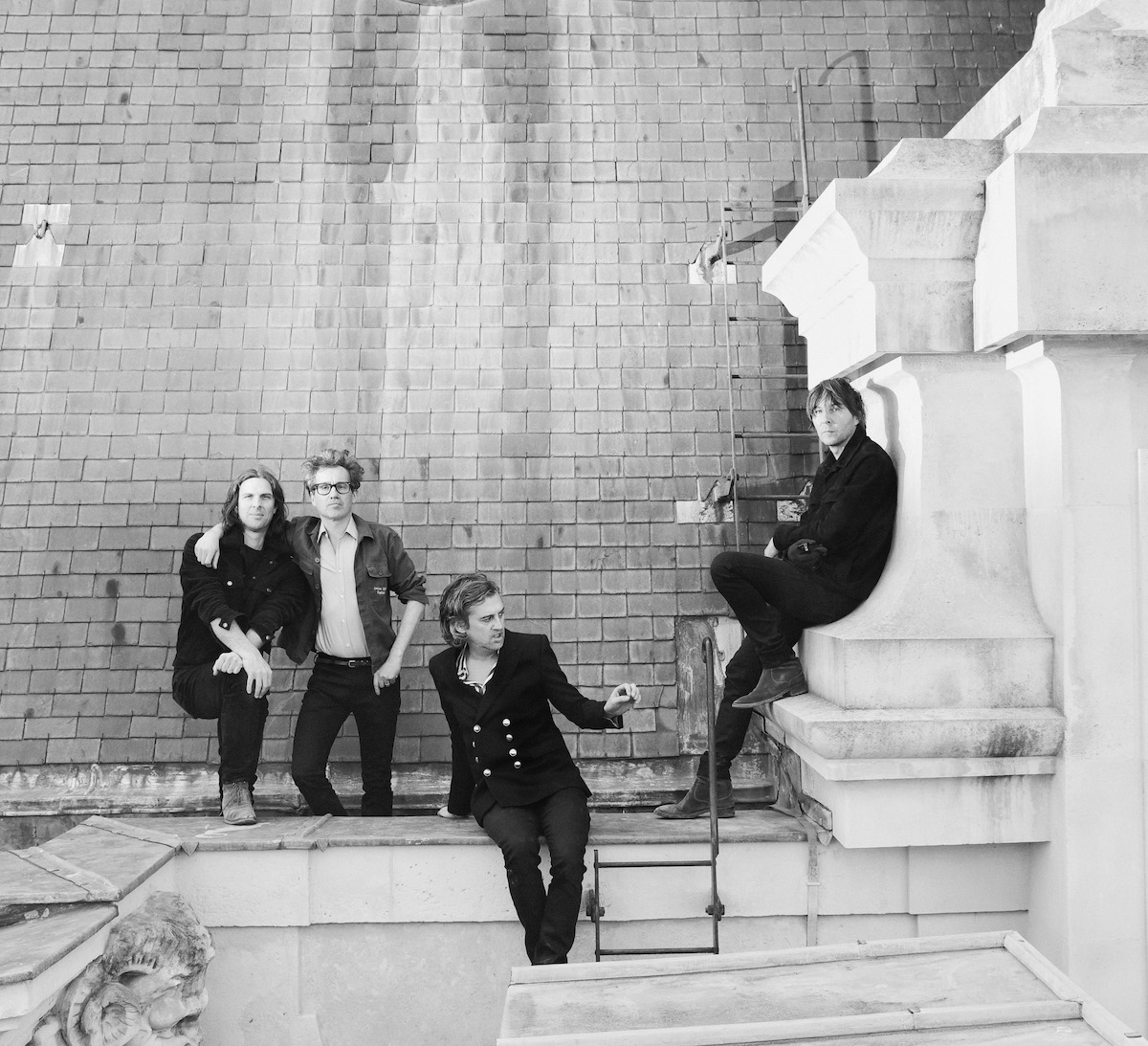
I found a lot of meaning in the song, “Season 2.” There's a lot of hope in that song, but it's hope mixed with uncertainty. I was wondering if you could share a little bit about what that song means to you.
Thomas Mars: That song, we circled around it forever. I think that’s the one that took the most brain power. To find the right balance really took a lot. It’s the kind of song that sounds great as a demo at first., and then you’re always struggling to replicate the charm of the demo. You spend years and so much time, and there are songs that never make it because you never can do it justice. But this one, at the very end, there was a quick thing… we had a moment where we were the four of us and we were like, “Okay, we have like a week to do this, to finish this. What are the possibilities?” And it came to get on and it worked, and it felt like it was rescued a little bit. That’s why my relationship with the song is a bit more personal. When I see people enjoying it, when I play it to my friends, I feel like we saved it from the vault!
Giddy-up, I’m bored and torn
Don’t wanna want to
Attaboy, I’m sure
Don’t waste a minute
Are you not enthused?
No matter what we used to say
Giddy-up and go
It tastes like heaven
More, I’ll be the number you adore, sure
But hold the thought before you ask
what’s new in season two
In Niagara Falls
Oh, watch me dive in, can I reach the shore?
You tell me how to love a thing or two
Before I fall in…
I've shared so many songs that I like off this album. Do you have any favorites or personal highlights off this record that we haven't yet discussed?
Thomas Mars: No, I’m excited to play them live ’cause I don’t know yet! When you play them live, they have a different vibe. “After Midnight” is a song that we rehearsed live – the tempo is 200 BPMs, so to me it’s just fun to watch our drummer go through that song [laughs] ’cause it’s intense for everyone, but it’s really intense for him! There are certain songs I’m really looking forward to playing because at rehearsals, we had a great time playing them – and also they mean a lot to us because it’s a pandemic record, no matter what. Like every record that’s coming out, there’s just more to it. There’s just more depth.
Somewhere, somewhere, somewhere to go
Many years ago
Would you allow? Could you allow?
That’s what they’re like
Uh, did you look? Did you look?
Heavenly, heavenly sort of sounds adolescent
Well, I told you not, not to look from the start
When the sun is almost gone, it’s way too much
Enough said, enough sense, it’s unconventional
When the sun is almost gone, it’s not enough
Suddenly, finally, without a yell, I’ll listen
Ooh, that’s what we’re like in broad daylight
Ooh, soon, you’ll realize it’s after midnight
I also hope to hear “Identical” – it's just such a strong song. It's kind of a dance party song with that beat in the background, but there's so much energy.
Thomas Mars: Yeah, we’ve turned it into a dance! At the end it shifts a little bit, and we highlight a bit of the bone structure to the song, too.
Seven albums and twenty-plus years in, what wisdom, if any, can you pass on to the next generation of recording artists?
Thomas Mars: I’m starting to do interviews, and the guy before you just asked the same thing about wisdom. [laughs] That’s the one I had no answer to, and I still need to come up with something, because it seems like it’s coming back!
I mean, we grew up not listening to anyone. That’s why we made music that we made. Growing up in France, we went to see a few record companies. They were giving us advice, and if we listened to them, we wouldn’t be here.
Like they said, “You have to sing in French. You have to do a lot of covers to practice.” So I’ve never encountered someone that was really, apart from maybe Philippe who was giving us great advice, but who was also a mirror to us that we could check every time. Like, is this good? Does he like it? Sometimes he wouldn’t like something, but we would like it so much that we would be like, “No, no. We’re gonna prove to him that we like it.” So I don’t really know, I don’t have a motto or words of wisdom. [laughs]
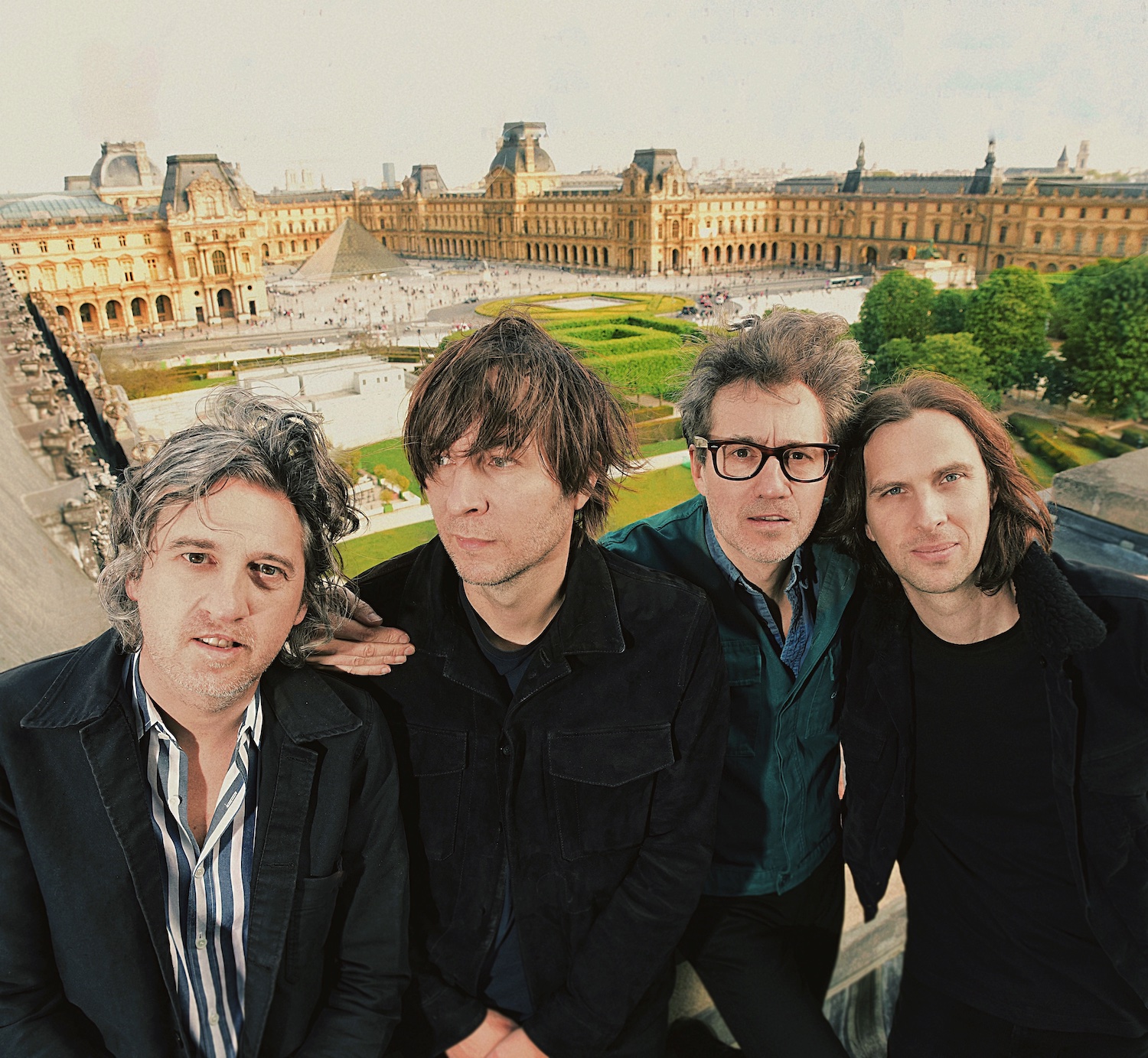
I think it's a testament to the fact that your band has been around for over 20 years and most bands don't even make it to 10. There's something really special about that. What do you hope listeners take away from Alpha Zulu, and what have you taken away from creating it and now putting it out?
Thomas Mars: Well, for us it’s a struggle. Making an album is a struggle, but we are musicians and we do what we love, so we can’t really complain. It’s therapy a little bit. And I don’t know what people would take from it, but there’s a lot of ups and downs in this record. The best music to me was whenever I needed it; it was there for me or something. It’s like a friend or something. It sounds so cheesy, but it’s true. So I think if an album can be part of your life for a certain amount of time, that it represents something to you. And that’s what I like about making records! That’s how I felt when certain records growing up just meant that much to me, or were very much a part of forming the band or just bonding… I don’t know. I hope to see just tears at the live show. [laughs]
We played a show in Brazil and there was this one guy in the first row who was bawling for an hour and a half and it was like, it’s crazy. This is crazy that music can do this, and I don’t know what he went through. These moments, they are special. I’m happy to play live soon because you get a sense of what music does to people and stuff.
— —
:: stream/purchase Alpha Zulu here ::
:: connect with Phoenix here ::
— — — —

Connect to Phoenix on
Facebook, Twitter, TikTok, Instagram
Discover new music on Atwood Magazine
© Shervin Lainez
:: Stream Phoenix ::

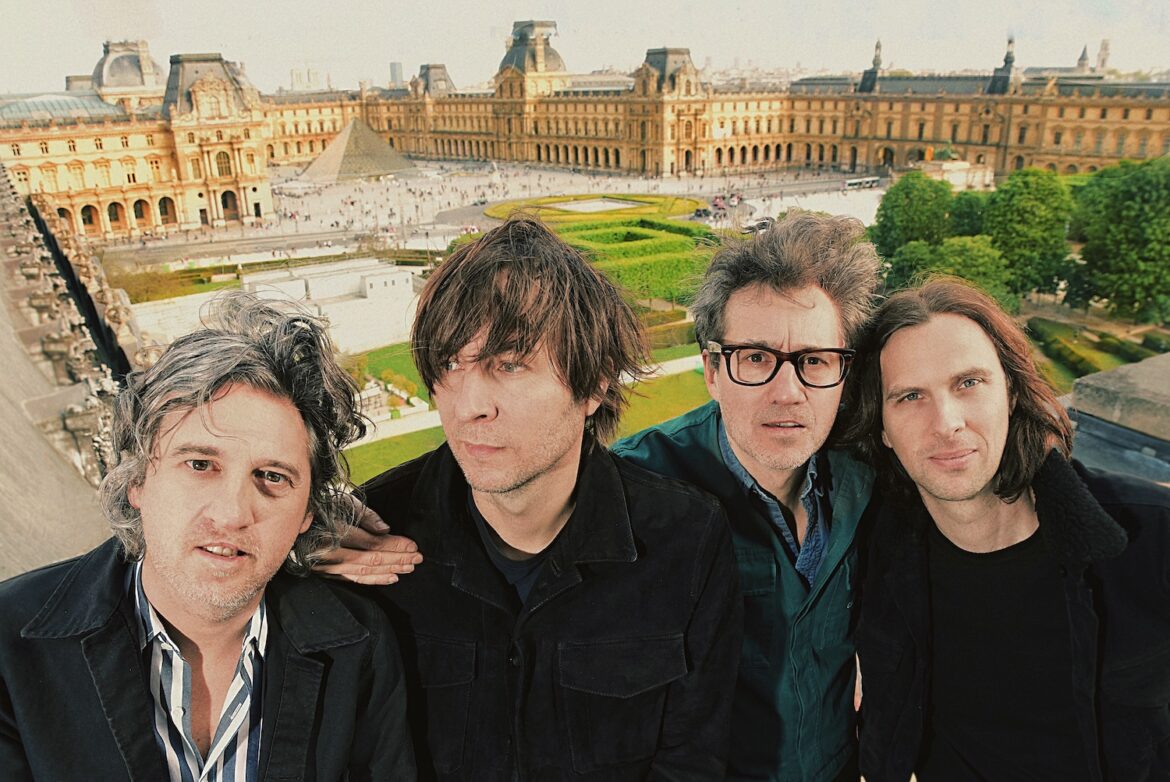
 © Shervin Lainez
© Shervin Lainez